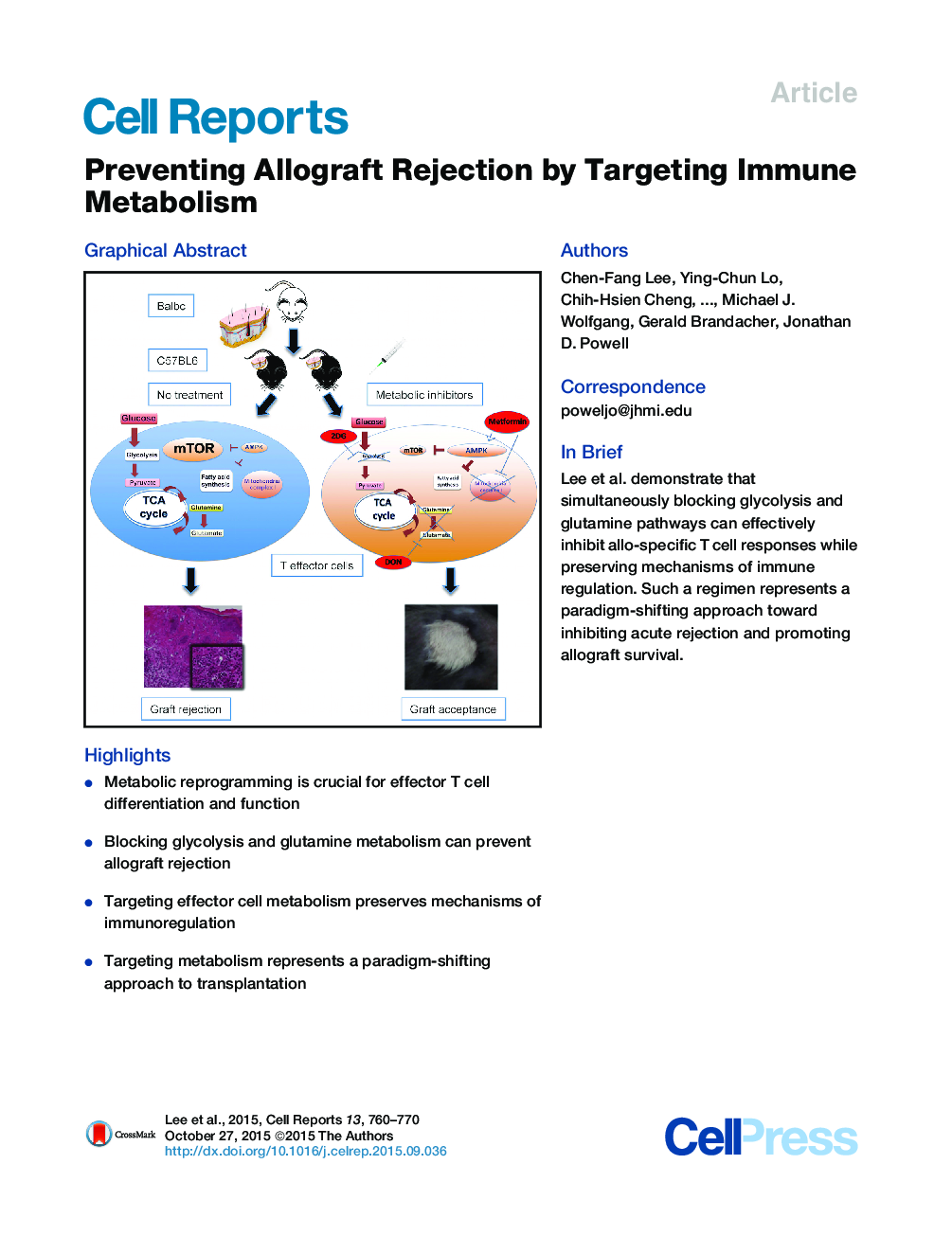| کد مقاله | کد نشریه | سال انتشار | مقاله انگلیسی | نسخه تمام متن |
|---|---|---|---|---|
| 2039396 | 1073053 | 2015 | 11 صفحه PDF | دانلود رایگان |
• Metabolic reprogramming is crucial for effector T cell differentiation and function
• Blocking glycolysis and glutamine metabolism can prevent allograft rejection
• Targeting effector cell metabolism preserves mechanisms of immunoregulation
• Targeting metabolism represents a paradigm-shifting approach to transplantation
SummaryUpon antigen recognition and co-stimulation, T lymphocytes upregulate the metabolic machinery necessary to proliferate and sustain effector function. This metabolic reprogramming in T cells regulates T cell activation and differentiation but is not just a consequence of antigen recognition. Although such metabolic reprogramming promotes the differentiation and function of T effector cells, the differentiation of regulatory T cells employs different metabolic reprogramming. Therefore, we hypothesized that inhibition of glycolysis and glutamine metabolism might prevent graft rejection by inhibiting effector generation and function and promoting regulatory T cell generation. We devised an anti-rejection regimen involving the glycolytic inhibitor 2-deoxyglucose (2-DG), the anti-type II diabetes drug metformin, and the inhibitor of glutamine metabolism 6-diazo-5-oxo-L-norleucine (DON). Using this triple-drug regimen, we were able to prevent or delay graft rejection in fully mismatched skin and heart allograft transplantation models.
Graphical AbstractFigure optionsDownload as PowerPoint slide
Journal: - Volume 13, Issue 4, 27 October 2015, Pages 760–770
